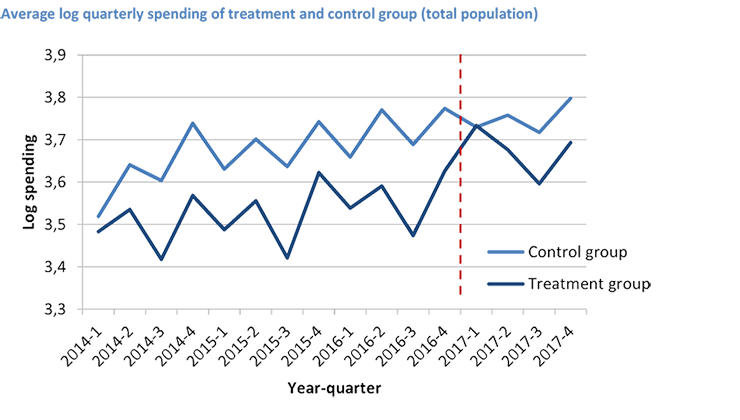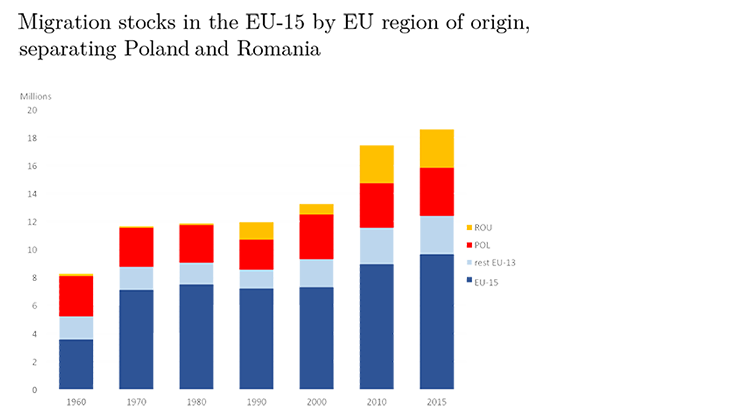Publications
Year
Author
- Peter Zwaneveld (5)
- Gerard Verweij (3)
- Paul Verstraten (3)
- Rudy Douven (3)
- Andrei Dubovik (2)
- Mark Kattenberg (2)
- Natasha Kalara (2)
- Adam Elbourne (1)
- Anja Deelen (1)
- Egbert Jongen (1)
- Frits Bos (1)
- Gerbert Romijn (1)
- Henk-Wim de Boer (1)
- Hugo Rojas-Romagosa (1)
- Joep Tijm (1)
- Johannes Bollen (1)
- Kan Ji (1)
- Lu Zhang (1)
- Machiel van Dijk (1)
- Marielle Non (1)
- Minke Remmerswaal (1)
- Patrick Koot (1)
- Raoul van Maarseveen (1)
- Remco van Eijkel (1)
- Sem Duijndam (1)
- Sonny Kuijpers (1)
- Thomas Michielsen (1)
- Thomas van der Pol (1)
- Show all
The effect of reinsuring a deductible on pharmaceutical spending: A Dutch case study on low-income people
The basic health insurance in the Netherlands includes a mandatory deductible of currently 385 euros per adult per year. Several municipalities offer a group contract for low-income people in which the deductible is reinsured, meaning that out-of-pocket spending under the deductible is covered by supplementary insurance. This study examines to what extent such reinsurance leads to higher pharmaceutical spending. →

Can we measure banking sector competition robustly?

Estimating migration changes from the EU’s free movement of people principle
We estimate the impact of the free movement of people (FMP) principle on bilateral intra-EU migration stocks using a gravity model. Employing a combination of the World Bank and the UN’s global migration databases, with observations between 1960 and 2015, allows us to analyse the impact of the FMP for most EU member states. →

Causes of regional variation in Dutch healthcare expenditures: evidence from movers
We assess the relative importance of demand and supply factors as determinants of regional variation in healthcare expenditures in the Netherlands. Our empirical approach follows individuals who migrate between regions. We use individual data on annual healthcare expenditures for the entire Dutch population between the years 2006 and 2013. →

The scope of the external return to higher education
This article examines whether the productivity spillovers from a large share of highly educated workers occur within regions, sectors and/or firms. To distinguish between these possibilities, I follow a two-stage procedure to estimate a Mincerian wage equation using matched employer-employee panel data on individual earnings and educational attainment. →
Economic Decision Problems in Multi-Level Flood Prevention: a new graph-based approach used for real world applications
Flood prevention policy is of crucial importance to the Netherlands. We assess economical optimal flood prevention where multiple barrier dams and dikes protect the hinterland against sea level rise and peak river discharges. Current optimal flood prevention methods only consider dike rings with no dependencies between dikes. We propose a graph-based model for a cost-benefit analysis to determine optimal dike heights with multiple dependencies between dikes and barrier dams. →
Does managed competition constrain hospitals’ contract prices? Evidence from the Netherlands
In the Dutch health care system health insurers negotiate with hospitals about the pricing of hospital products in a managed competition framework. In this paper, we study these contract prices that became for the first time publicly available in 2016. The data show substantive price variation between hospitals for the same products, and within a hospital for the same product across insurers. →
